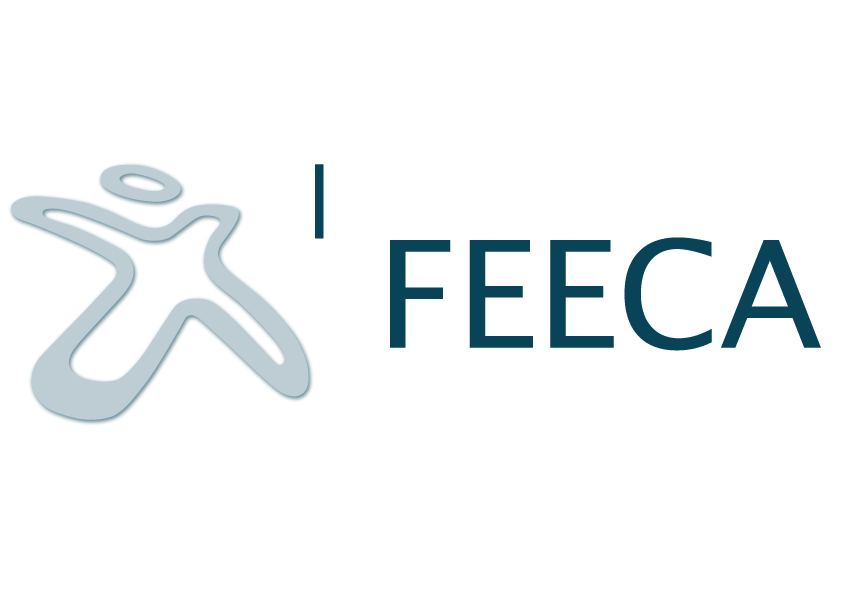Statement
The Mission Statement of the European Federation for Catholic Adult Education
Preamble
Convinced that furthering both European integration and international cooperation, based on faith in freedom and a democratic order, is a pressing task for anyone involved, we believe that Catholic adult education can contribute considerably to this task. Hence, on 2 May 1963, the “European Federation for Catholic Adult Education” was founded in Luzern (Switzerland). FEECA was awarded a participatory status by the Council of Europe, Category B, as of 20 January 1967. The fundamental aims and objectives of FEECA are in accordance with the Charta Oecumenica of the Consilium Conferentiarum Episcoporum Europae (CCEE). FEECA is based in Brussels. The location of offices overseeing operative tasks can be located anywhere else in Europe, not necessarily in Brussels.
1. Mission
FEECA …
… facilitates the connection of national Catholic adult education organisations towards a European network, which it represents in what is a multitude of European adult education providers.
… supports, through maintaining a dialogue-based approach to education within a multicultural and multireligious European society, the right of individuals and communities to livelihood and dignity, and raises its voice for a Christian idea of man.
… is grounded in the diverse educational and cultural history of the Catholic Church, both in Europe and beyond, supports the development of national adult education programmes, and offers the space for mutual learning on an international level.
… represents Catholic adult education on a European level, as well as vis-à-vis politics and society at large, and other Christian churches. In doing so, FEECA contributes substantially toward establishing and fostering European educational and ecclesiastic policies.
… promotes rigorously the professionalization of Catholic adult education in Europe, both in terms of content and methodology/didactics, by developing common quality standards through institutional cooperation with respect to theory and practical approaches, and the fostering of international learning partnerships.
2. Basic principles
FEECA is grounded in the scriptural idea of man, and promotes fundamental values Respecting all forms of life It will be made sure that, in any case, it is the individual who will be valued most, not necessarily his or her social role. Any form of life, damaged or handicapped, enjoys utmost respect. Openness and tolerance Interaction based on values is what constitutes communication. Therefore, knowledge, intuition, belief, religious denomination, and cultural diversity can be made accessible to others, so that a variety of social skills can flourish in dynamic interaction. Quality/credibility FEECA’s daily work is based on the latest scientific findings, living interaction in practice, and historical experience. The mystic-political potential (beliefs and values) of the Christian tradition are respected carefully, as well as contemporary concerns acknowledged. This renders possible decision-making in spirituality. Solidarity The national institutions mutually empower one another via the exchange of information, opinions, and proposals for action within a European network, and negotiate responsibly and in partnership new ways of learning against the background of globalization. Sustainability In order to develop visionary ideas for the future, both on national and European levels, the critical engagement with individual, social, and religious histories, as well as contemporary ecclesiastic, scientific, cultural, and economic issues, is actively encouraged. Lifelong Learning for Everyone FEECA promotes the concept of lifelong learning for everyone. In this respect, the socially marginalised deserve particular attention. FEECA advocates a universal approach to adult education, the aged included.
3. Objectives
FEECA intends …
… to raise awareness to the basic right of each individual to education, and by promoting structural measures to open up pathways to education for as many people in Europe as possible.
… to participate in the debate on and implementation of an up-to-date definition of education, together with schools, universities and adult education providers in Europe. FEECA will highlight the existential dimensions of being, and champion a holistic, Christian idea of man – thereby, FEECA actively opposes contemporary tendencies towards an ever-increasing level of functionality and economization of social relationships.
… to improve the image of general adult education vis-à-vis merely vocational training schemes.
… to render accessible scientific theories and the rich experience of our members through the creation of working groups, projects and seminars, which will also allow for the development of collective ideas and strategies.
… to offer and make use of spaces for encounter and places for learning and training, as to enable all those that come from a variety of educational backgrounds to think critically, engage in dialogue, and learn to act innovatively, but based on values, in a pluralist religious and cultural society.
… to develop a profile of a Catholic approach to adult education on a supra-national level, which shall be valued and appreciated for its quality within in the pluralism of today’s educational programmes.
4. Activities
The members of FEECA value internal communication with regard to each other and external groups. They will keep in contact, invite each other for talks, organise meetings, draft discussion papers, and make use of all available modern telecommunication facilities. The representatives of FEECA seek to actively engage with politicians, representatives from adult education organisations and education experts, leading members of the Church, and representatives of other churches and faiths, on national and international levels. The representatives of FEECA will draft proposals, consult with others, and work on concepts for pan-European projects, network with individuals and organisations that might show an interest in this respect. Therefore, they will establish working groups, round table talks und internet discussion portals. The members of FEECA will participate in partnerships for learning. They will work towards programmes for learning on an international level, and provide mutual assistance to each other – via networking and the exchange of specialised knowledge. The executives of FEECA will organise specialist conferences and symposia, and raise awareness among the public through well-defined national and international press relations work. The executives of FEECA are open to new methods in adult education, which they will test and disseminate. Particular attention will be paid to those projects geared to the future that champion sustainability.
Szombathely, 4 May 2004


